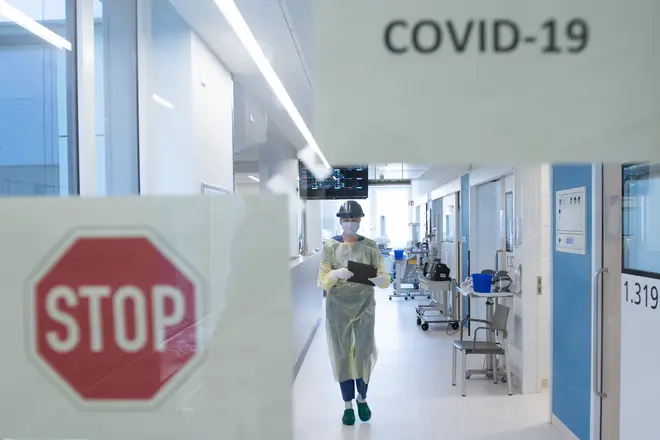
Ian Payne 4am - 7am
7 April 2020, 17:56

Boris Johnson is “stable” and is breathing without a ventilator after being moved to intensive care at a London hospital.
The Prime Minister was taken to St Thomas’ Hospital on Monday night after his coronavirus symptoms worsened and he experienced breathing difficulties.
Here, we take a look at what treatment he is likely to be receiving.
An intensive care unit, or ICU, is a specialist hospital ward designed to cater for the most severely ill patients.
Where other wards often have a higher staff to patients ratio, in ICU there are often nurses for every one or two patients to provide round-the-clock care.
Patients in critical care often have a problem with one or more organs, such as breathing difficulties and are therefore very ill.
They can be sent to critical care for a variety of reasons, including:
- after experiencing major trauma such as a road traffic accident or burns
- a serious short-term condition such as a heart attack or stroke
- a serious infection such as pneumonia or sepsis
- to recover from major surgery.
During the coronavirus pandemic, those in intensive care are typically Covid-19 patients with severe respiratory difficulties.
Most recover from the disease after the first week after typically experiencing dry coughs, a fever and shortness of breath.
But for those who do not, the virus attacks the immune system in the second week and can prove life-threatening.
Boris Johnson was moved from a standard ward at St Thomas’ to ICU so that he could be closer to a ventilator, but Downing Street said he has only received "standard oxygen treatment" so far.

Inside the first NHS Nightingale Hospital
All patients in ICU will receive regular monitoring of things like their heart rate and blood pressure, and can be connected to multiple machines via various tubes, including feeding tubes and catheters to drain excess bodily fluid.
NHS Nightingale, the newly-built emergency field hospital at the ExCel Centre in London’s Docklands, has 500 critical care beds with ventilators - but not everyone admitted to ICU needs a ventilator.
Some will be connected to a breathing support machine called CPAP (continuous positive airway pressure) that boosts oxygen supplies in the airways via a mask, but patients do not have to be put in a coma - unlike those who need a ventilator.
In severe cases, Covid-19 patients in ICU are put on an ECMO machine (extracorporeal membrane oxygenation), which can support both the heart and lungs. There are only a small number of these machines in the UK at major trauma centres.
When patients in ICU are well enough, they are moved to a less critical ward to free up the bed for another severely ill patient.
But others may have to stay for weeks or months if they show little signs of recovery.